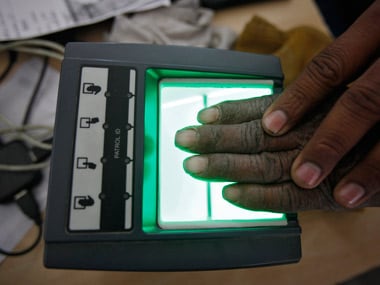New Delhi: In a landmark decision that will affect the lives of all Indians, the Supreme Court on Thursday unanimously declared that right to privacy was a Fundamental right under the Constitution. A nine-judge Constitution bench headed by Chief Justice JS Khehar ruled that “right to privacy is an intrinsic part of Right to Life and Personal Liberty under Article 21 and entire Part III of the Constitution”. The ruling on the highly contentious issue was to deal with a batch of petitions challenging the Centre’s move to make Aadhaar mandatory for availing the benefits of various social welfare schemes. While the Centre had argued that right to privacy is not a Fundamental right, the petitioners had contended that when a citizen gives his biometrics and personal details to the government and when in turn it is used by commercial organisations, it is a breach of privacy.
The judgment was limited to the issue of right to privacy and the question whether Aadhaar violates right to privacy will be dealt with the five-judge bench which has been hearing the petitions since 2015.
In Thursday’s judgement, other members of the bench comprising Justices J Chelameswar, SA Bobde, RK Agrawal, RF Nariman, AM Sapre, DY Chandrachud, SK Kaul and S Abdul Nazeer also shared the same view. The nine judges unanimously overruled the two earlier judgments of the apex court that right to privacy is not protected under the Constitution. The bench overruled the MP Sharma verdict of 1950 and that of Kharak Singh of 1960. The judgment in the Kharak Singh case was pronounced by eight judges and in MP Sharma it was delivered by six judges. Justice Khehar, who read the operative portion of the judgment, said the subsequent verdicts pronounced after MP Sharma and Kharak Singh have laid down the correct position of the law. Before pronouncing the judgment, the CJI said that among the nine judges some of them have authored different orders. [caption id=“attachment_3829337” align=“alignleft” width=“380”]  Representational image. Reuters[/caption] The verdict was reserved after hearing marathon arguments for six days over a period of three weeks, during which submissions were advanced in favour and against the inclusion of the right to privacy as a fundamental right. The high-voltage hearing saw a battery of senior lawyers, including Attorney General KK Venugopal, Additional Solicitor General Tushar Mehta, Arvind Datar, Kapil Sibal, Gopal Subaramaniam, Shyam Divan, Anand Grover, CA Sundaram and Rakesh Dwivedi, advancing arguments either in favour or against the inclusion of right to privacy as a fundamental right. Petitioners include former Karnataka High Court judge Justice KS Puttaswamy, first Chairperson of the National Commission for Protection of Child Rights and Magsaysay award recipient Shanta Sinha, feminist researcher Kalyani Sen Menon and others who have challenged the validity of the Aadhaar scheme on grounds of it being violative of the right to privacy. Initially, on 7 July, a three-judge bench had said that all issues arising out of Aadhaar should finally be decided by a larger bench and the CJI would take a call on the need for setting up a constitution bench. The matter was then mentioned before CJI Khehar who set up a five-judge constitution bench to hear the matter. However, the five-judge constitution bench on 18 July decided to set up a nine-judge bench to decide whether the right to privacy can be declared a fundamental right under the Constitution. The decision to set up the nine-judge bench was taken to examine the correctness of two apex court judgments delivered in the cases of Kharak Singh and MP Sharma in which it was held that this right was not a fundamental right. While reserving the verdict, the bench had voiced concern over the possible misuse of personal information in the public domain and said that protection of the concept of privacy in the all-pervading technological era was a “losing battle”. During the arguments earlier, the bench had observed that the right to privacy cannot be an absolute right and the state may have some power to put reasonable restrictions. The attorney-general had also contended that right to privacy cannot fall in the bracket of fundamental rights as there were binding decisions of larger benches that it was only a common law right evolved through judicial decisions. The Centre had termed privacy as a “vague and amorphous” right which cannot be granted primacy to deprive poor people of their rights to life, food and shelter. The high-profile arguments also saw the apex court asking searching questions about the contours of right to privacy in the digital age when personal information was randomly shared with all types of government and private entities. The bench had wanted to know about the tests which could be used to regulate and enforce privacy right when there could be “legitimate or illegitimate” use of data. Meanwhile, the petitioners had contended that the right to privacy was “inalienable” and “inherent” to the most important fundamental right which is the right to liberty. They had said that right to liberty, which also included right to privacy, was a pre-existing “natural right” which the Constitution acknowledged and guaranteed to the citizens in case of infringement by the state. The apex court had favoured overarching guidelines to protect private information in public domain and said there was a need to “maintain the core of privacy” as the notion of privacy was fast becoming irrelevant in an all-pervading technological era.


)




